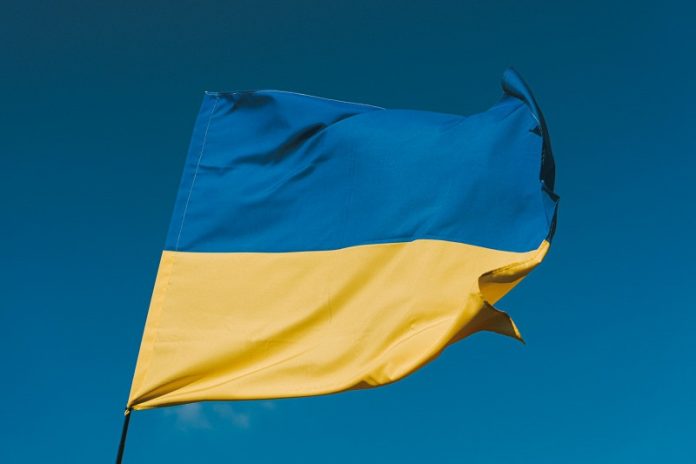
When Russian President Vladimir Putin announced a “special military operation” on Feb. 24, 2022, University of Chicago Prof. Konstantin Sonin called the full-scale invasion of Ukraine “the end of Russia as we know it.”
Since then, Sonin, a Russian exile and frequent critic of Putin’s regime, has shared his expertise on Russia and autocracy publicly—which led to him being sentenced in absentia to eight and a half years in prison in February 2024.
Unfazed, the John Dewey Distinguished Service Professor at the UChicago Harris School of Public Policy published the case documents against him on X.
As the invasion of Ukraine approaches its third anniversary, we asked Sonin his perspective on the latest regarding the War in Ukraine and what the election of Donald Trump could mean for peace in the region.
What is the state of play on the ground in Ukraine now?
So far this year, the Ukrainian Army has mostly defended what it holds, while the losses of both armies, especially of the Russian Army, are far larger than they have been.
The scale of the war has dramatically increased. It’s a stalemate: Russian forces are very slowly advancing in Ukraine, but it is a vast country, and it will require millions of Russian soldiers dead—and billions of dollars spent—for Russia to get closer to the larger Ukrainian cities.
Russia now occupies slightly less than 20% of the Ukrainian territory, as it was defined in 1991. However, most of this occupied territory was taken before the full-scale war, with Crimea, which was occupied in 2014. Of the newly occupied territory, there is only one medium-sized Ukrainian city.
Of the smaller cities that have been taken by Russia, all are in ruins. Taking a city means basically destroying it, razing it to the ground. So, the reality is that the gains made by Russia have been turned into just a sort of wasteland, which is both a travesty and unhelpful to Russia’s effort.
What is Putin gaining by continuing the war?
I think that he enjoys it. But it’s also true that people around him are getting richer due to military production and war profiteering.
The war also justifies in his mind very harsh political repressions, which keep him in power despite his being very unpopular.
We must remember that this war never made sense. Ukraine is a huge country with 40 million people; how could he imagine occupying it? It was irrational, so therefore it would not happen. People who study authoritarian regimes, however, know that dictators do crazy things. And Putin is no exception.
Do you see the potential for a negotiated end to the war?
Highly doubtful. Putin is the main obstacle for negotiations. He’s not really interested in meaningful talks.
Nor is he interested in negotiating security guarantees—Ukraine getting NATO protection, or steps like Polish, Swedish, or Norwegian troops on the border. His goal is to subjugate Ukraine. For him, it’s not territory. It’s control over the whole country.
What could cause him to stop? I think there is an outside chance of a military coup. It might look similar to what happened during the Russian Revolution: some participants of the coup opposed the war because they wanted to stop the dying, and the other participants were against the war because they disliked how it was being prosecuted.
There are other examples from history worth considering, too. In 1943, the Nazis occupied half of France and half of European Russia, but Hitler never actually negotiated despite the strength of his position.
It’s true that Stalin, Churchill, and Roosevelt decided at Yalta that they were not going to negotiate with him, but there is no evidence that Hitler himself was ever interested in serious talks. I think Putin is at least as ideological as Hitler. Maybe not as evil, but he’s just as ideological. That’s why it seems very unlikely that he’ll negotiate.
What will the re-election of President Donald Trump to a second, non-consecutive term mean for the war?
Putin seems to have high expectations for Donald Trump—unreasonable ones. He thinks that Trump will deliver much: the total subjugation of Ukraine, including prohibiting Ukraine from having its own armed forces.
This is totally delusional: Ukraine now possesses one of the largest defense industries in all of Europe and would never agree to dismantling it now.
The vast majority of American people support Ukraine. A very solid majority of U.S. elected representatives are also for supporting Ukraine. The American people see, as the European people see, that this was an unprovoked aggression and a war of conquest, with a clear victim and a clear aggressor. I understand the political fuss, but eventually it’s the American people and the representatives who speak.
Putin has high hopes for Trump, but Trump will not be able to deliver the lopsided agreement that Putin is hoping for.
You and Scott Gehlbach taught in Ukraine. Would you ever go back?
Yes. I plan on it. Though if Ukraine reaches a negotiated settlement that is cozy with Russia, as doubtful as that may be—perhaps I’ll be forced to reconsider.



